General Linguistics and Foreign Languages Department was reorganized to solve a specific task - to raise the level of teaching foreign languages, which are a means of communication between specialists in various fields of science, technology and culture. This task requires solving a number of important tasks - scientific, pedagogical and social.

The uniqueness of the specificity of the General Linguistics and Foreign Languages Department lies in the fact that its scientific and pedagogical workers deal with important modern scientific disciplines, teaching foreign languages to specialists of various structural units based on the material of their specialization. This makes it possible to generalize the specifics of the life of language in different sciences and the life of science in different languages, to enrich one's own linguistic science. On the other hand, teachers of the department, while teaching students, develop a new model of training specialists in various fields of science and technology.
Every year, the department holds an international scientific and practical conference, as well as advanced training courses and seminars, conducts scientific seminars for students, graduate students, university teachers, publishes monographs and collections of scientific works.
The General Linguistics and Foreign Languages Department teaches English, German, French and Polish for students of all majors of the university. Scientific and pedagogical staff of the department conduct a constant search for new methods, ways and techniques of learning foreign languages, and also help students to understand cultural values and ethical norms of behavior inherent in speakers of one or another linguistic culture.
University students receive high-quality practical and theoretical foreign language training, master the skills of conducting scientific research, participate in scientific conferences of various levels and publish the results of their scientific activities. Library funds and a computer class with access to the Internet are available to students.
The department closely combines the learning process with humanitarian education of students. Educational activities aimed at the formation of a healthy lifestyle, spiritual-moral, national-patriotic and aesthetic education are carried out: conversations, lectures, thematic evenings, round tables, debates, visits to the theater, excursions to museums, art galleries, enterprises and organizations with professional direction of student training.
As a separate structural unit, the department of foreign languages was created in 1954. Over the years of her existence, she managed to develop her own teaching style, skillfully combining traditional and modern teaching methods. From 2016 to 2019, this structural unit functioned as the Department of Foreign Philology and Translation, and from September 2019 – the Department of General Linguistics and Foreign Languages.
Scientific and pedagogical staff of the department teach English, German, French and Polish. Since 1948, the department has been accepting candidacy exams not only from scientists of the National Technical University of Ukraine, but also from other institutions of higher education and enterprises of Ukraine.
Its first head was candidate of pedagogical sciences Aleksanyants K. A. In subsequent years, the department was headed by senior teachers: E.I. Kasyan, V.P. Valuev, T.G. Pimenova, candidates of philological/pedagogical sciences, associate professors: Zh.M. Simachevska, V.M. Pavlenko, V.P. Perli, Belenkov M.F., Demchenko N.O., Strilets V.S., Grinchenko N.O. Since 1952, Yevdokia Kasian, a graduate of the Kharkiv Institute of Foreign Languages, a legendary intelligence officer of the Great Patriotic War, taught German at the department. Currently, the head of the Department of General Linguistics and Foreign Languages is candidate of philological sciences, associate professor Alla Bolotnikova.


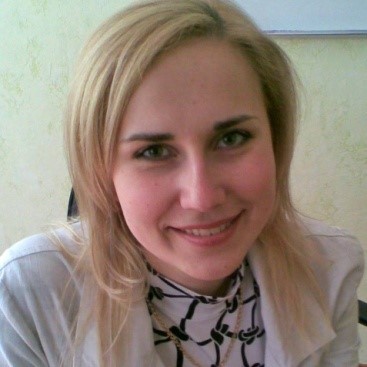
Bolotnikova Alla Petrivna
Head of the Department, PhD in Philology, Associate Professor
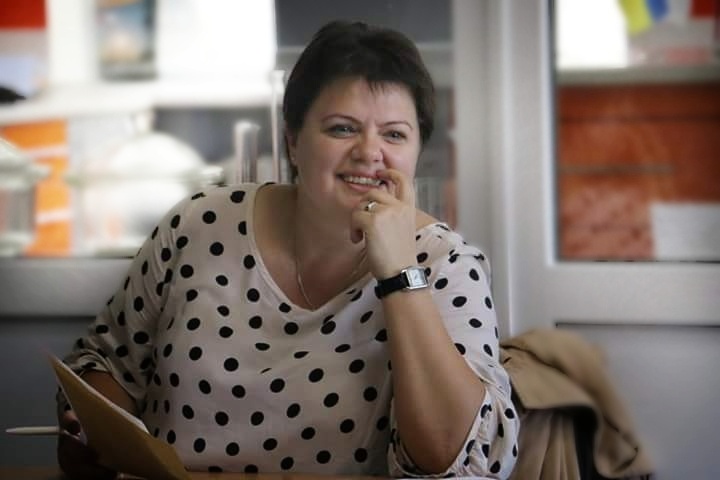
Aheicheva Anna Oleksandrivna
PhD in Pedagogy, Associate Professor
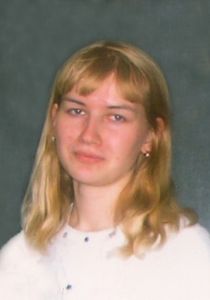
Balatska Olena Leonidivna
PhD in Philology, Associate Professor
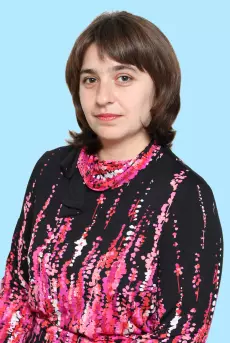
Halaur Svitlana Petrivna
PhD in Philology, Associate Professor
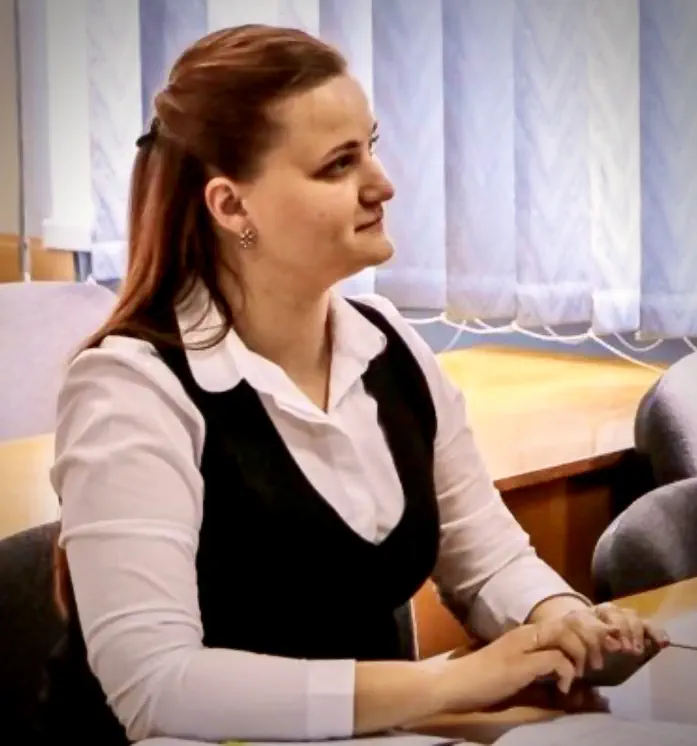
Korol Tetiana Hryhorivna
PhD in Philology, Associate Professor
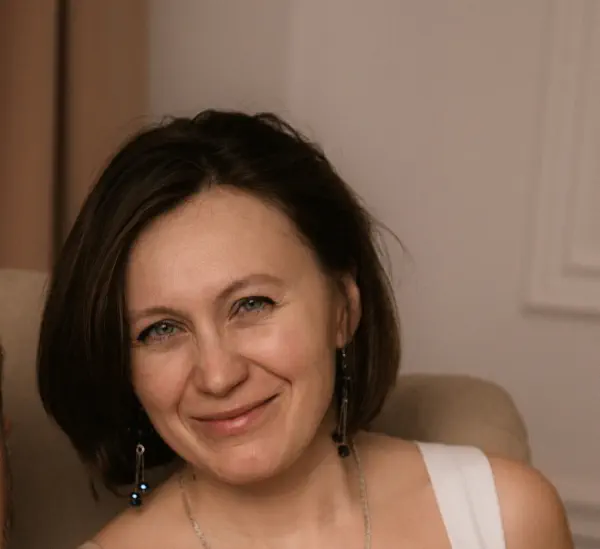
Syrota Yuliia Oleksandrivna
PhD in Philology, Associate Professor
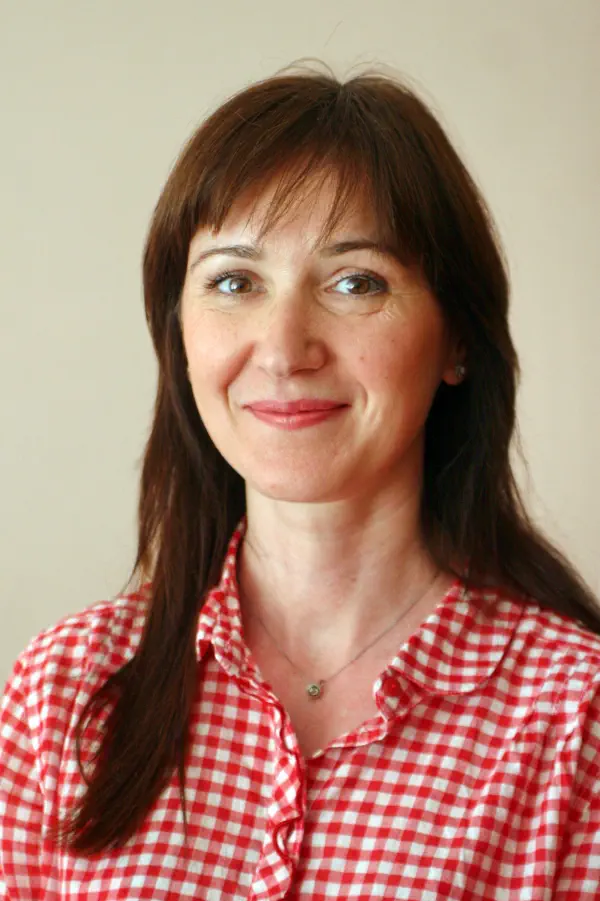
Talovyria Halyna Mykhailivna
PhD in Pedagogy, Associate Professor
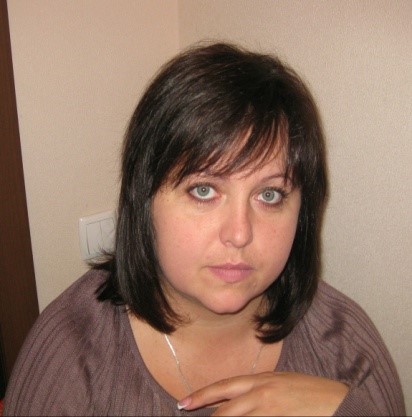
Fedorenko Yuliia Petrivna
PhD in Pedagogy , Associate Professor
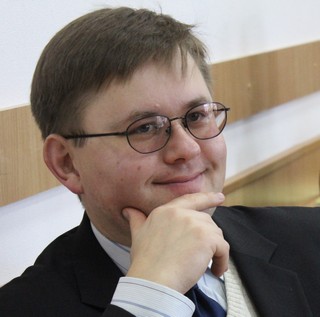
Chernyshov Viktor Volodymyrovych
PhD in Philosophy, Associate Professor
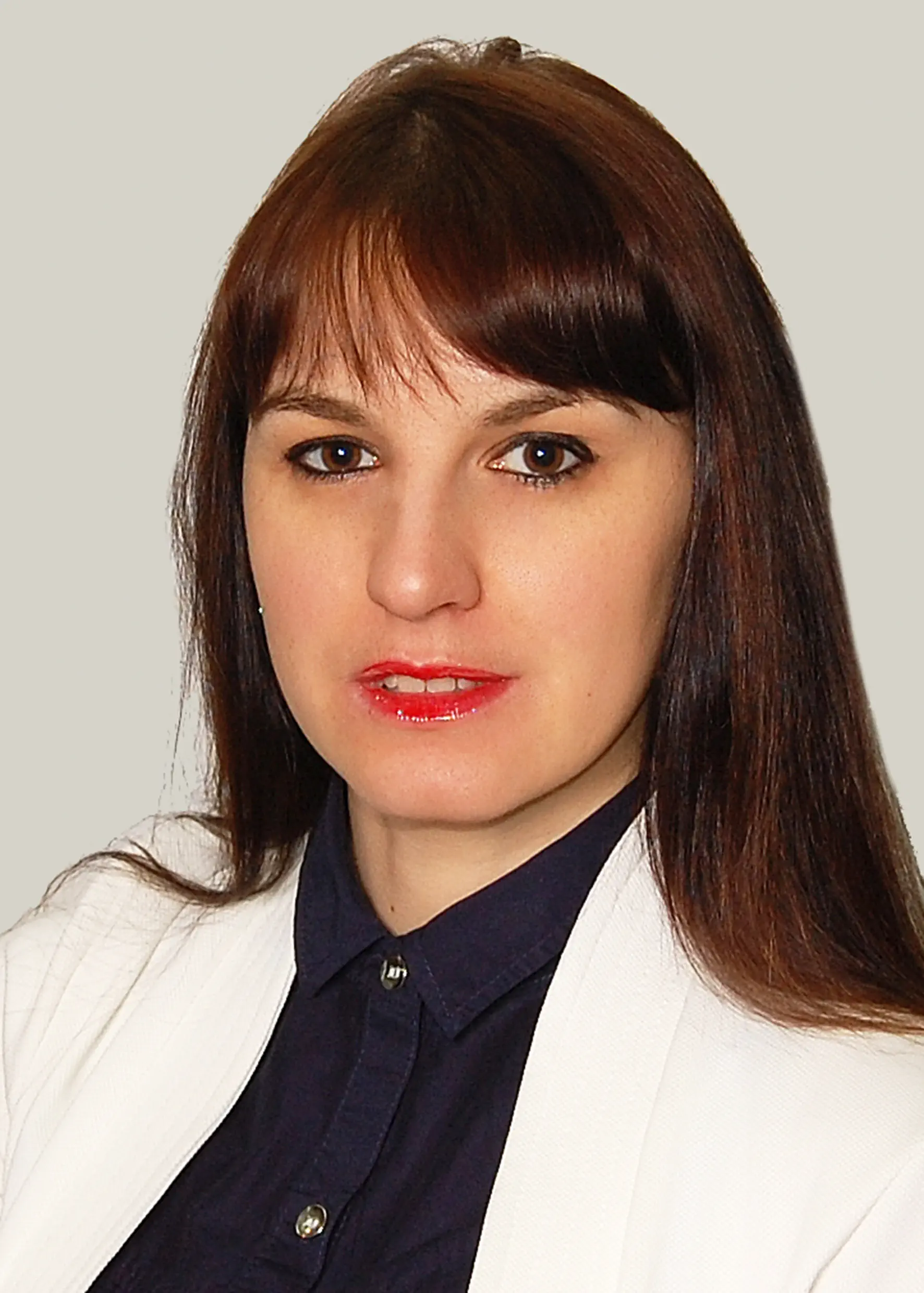
Bondar Nataliia Vasylivna
PhD in Philology, Senior Lecturer
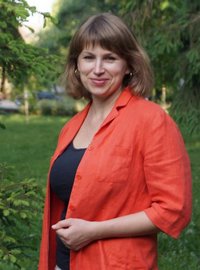
Hunchenko Yuliia Viktorivna
Senior Lecturer
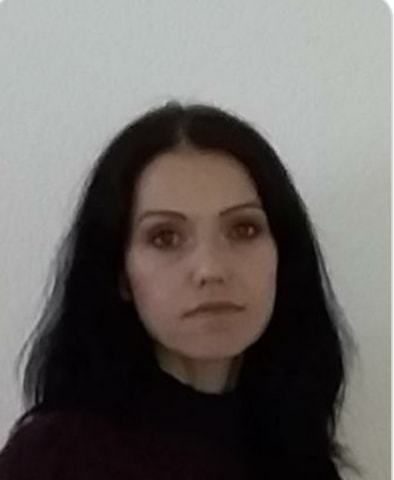
Moskalenko Maryna Volodymyrivna
Senior Lecturer
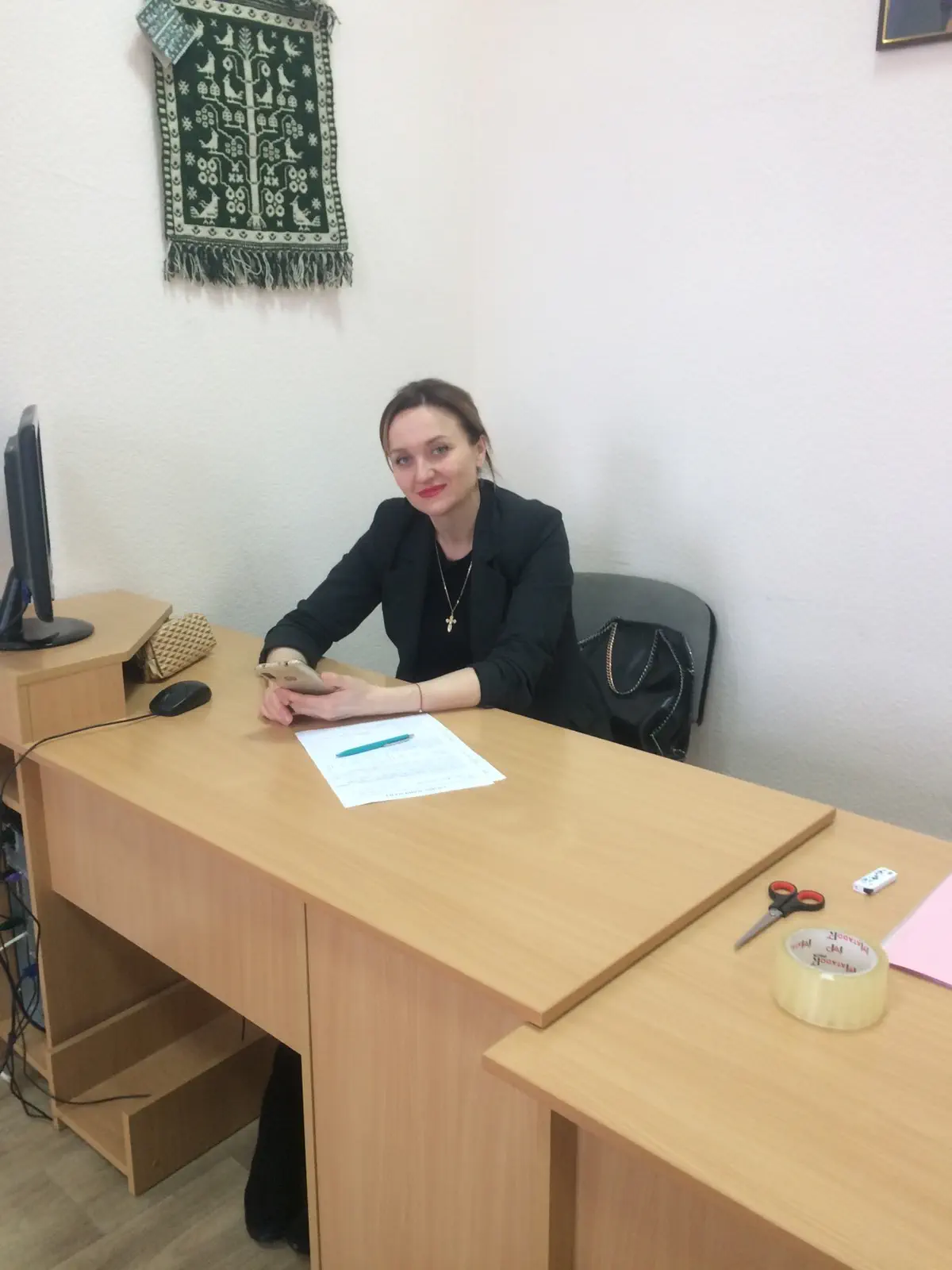
Sereda Alla Valeriivna
Senior Lecturer
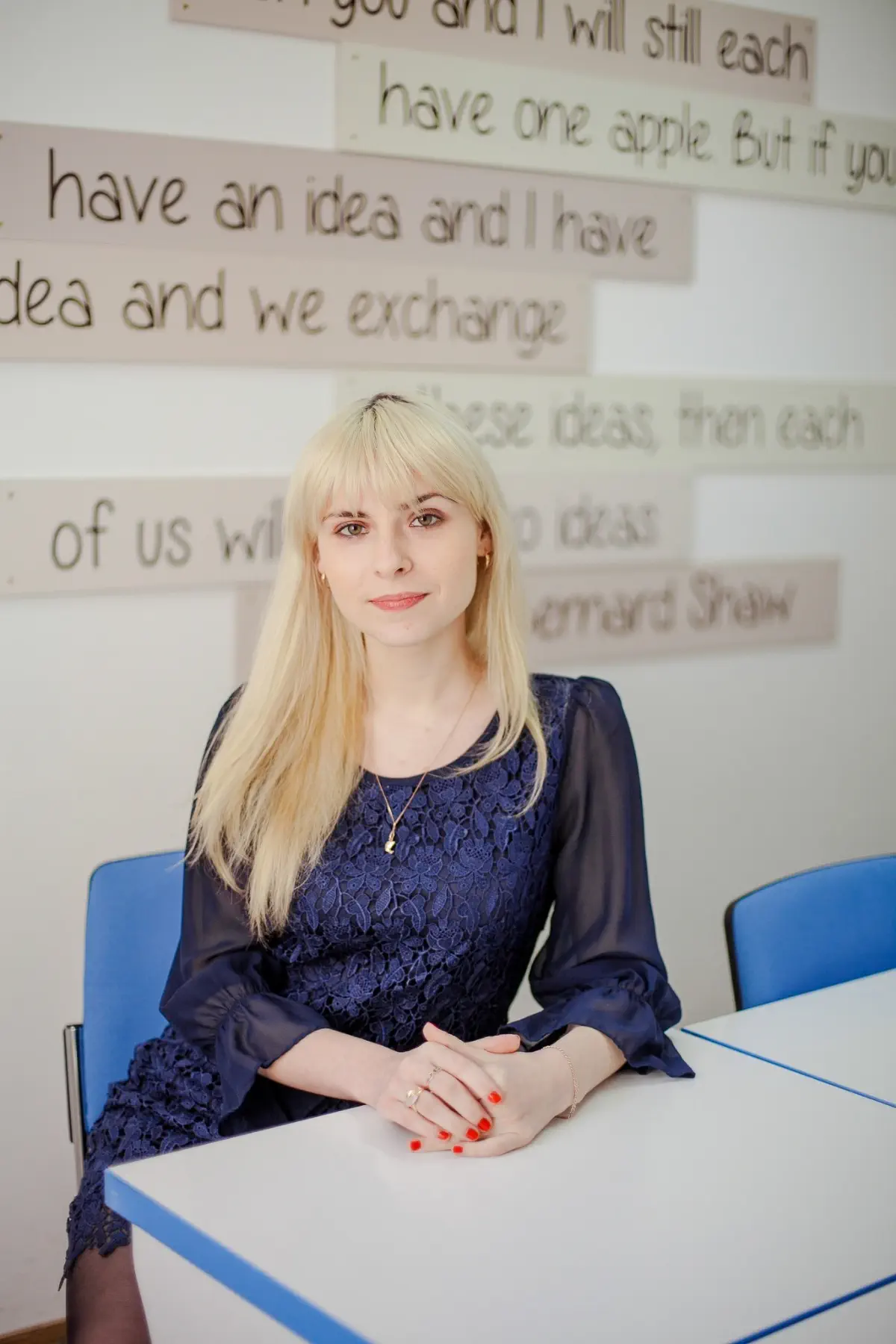
Riznyk Yuliia Yuriivna
Lecturer
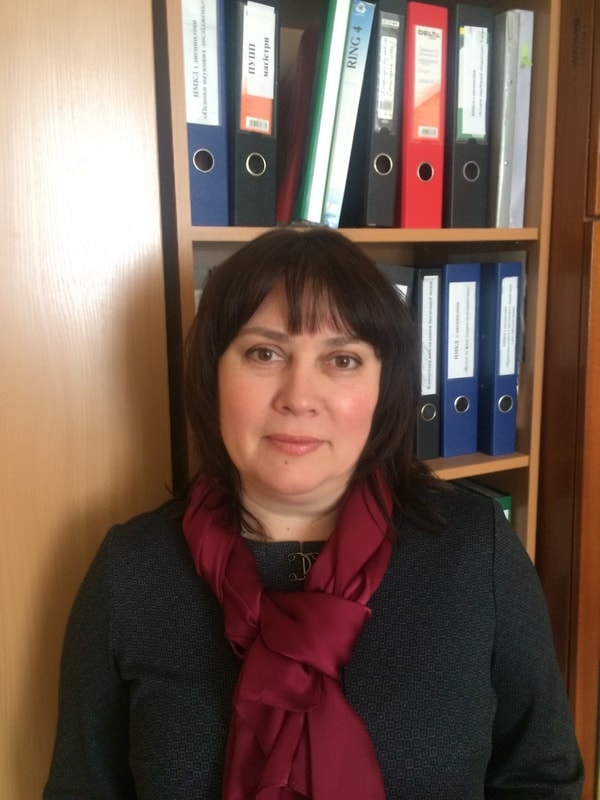
Antonets Elina Leonidivna
Specialist
Educational Program “Secondary Education (English language and second foreign language)”
Field of study 01 Education/Pedagogics
Specialism 014 Secondary Education, Specialization 014.021 English Language and Literature
Educational level - Bachelor
Term of training - 4 years
The purpose of the program is to train highly qualified specialists who are capable of forming foreign language communicative competence of pupils and students of secondary and higher education institutions, professional higher education, to ensure their upbringing and development; providing an appropriate level of preparation for further education in order to obtain a second (master's) higher education level.
A high level of specialists’ practical training is provided through teaching disciplines by highly qualified academic researchers and teachers; developed international cooperation in scientific and educational spheres; involvement of native speakers, in particular, English, German and Polish, in the educational process; availability of specialized rooms and computer laboratories.
Positions that graduates can hold
- English teacher and lecturer;
- German teacher and teacher;
- Polish teacher and teacher;
- Specialist in teaching methods;
- Scientific consultant in the field of intangible production (education, culture, art);
- Teacher's assistant;
- Trainee teacher;
- Educationist of professional teaching;
- Cultural organizer of children's out-of-school institutions.
Partner Institutions
British Council in Ukraine (UK), Peace Corps (USA), Goethe-Institut (Germany), University of Natural Sciences and Humanities in Siedlce (Republic of Poland), National Academic Exchange Agency NAWA (Republic of Poland), Center of the Foreign Languages Learning "Status" (Poltava).
The concept of the development of research and innovation activities of the Department is aimed at fulfilling the social order for specialists of a wide range of economic, technical and humanitarian specialities who are able to use a foreign language in situations of the professional sphere at the level of an Independent User (B2).
The concept covers all the activities of National University “Yuri Kondratyuk Poltava Polytechnic” and presupposes the following steps:
Development of professional skills
Optimizing the teaching staff by means of implementing the strategic plan of theses defense by Department’s researchers, encouragement of doctoral studies.
Teaching work
Increase of the methodological publications, recommended by the University, and textbooks for the subjects taught at the Department.
Implementing the advanced educational technologies into the process of foreign languages training: teaching with the use of language portfolio, project work methods, “immersion” technique.
Research work
Raising of the Department’s scientific capacity by means of active participation in scientific conferences of different levels with the obligatory publication of articles or abstracts and personal presentations.
Publishing research findings in academic journals including those listed in academic databases.
Conducting academic seminars and providing consultations for academic staff members, post-graduates, students and University employees within the framework of the “Foreign Languages Centre” academic-methodology laboratory.
Information and Telecommunication Activities
Information and telecommunication activities of the General Linguistics and Foreign Languages Department are directed at the application of the computer language laboratory, equipped with modern software system “Dialogue Nibelung” in the training process. It ensures:
- Raising the media education level of the teaching staff through discussing the theoretical and practical issues of “Dialogue Nibelung” technical and didactic possibilities in foreign languages teaching at a technical university during the methodology workshop meetings;
- Giving master-classes, aimed at formation and improving computer skills of the teachers, working with the software system “Dialogue Nibelung;
- Defining the criteria for selection and implementation of texts, audio and video materials appropriate for use within the mentioned program;
- Creating task sets for teaching, reading, listening, speaking and writing in the interactive multimedia environment;
- Tests development and their input into the program;
- Holding demonstration classes in the computer language lab.
International Cooperation Development
- Comprehensive study of foreign experience in teaching foreign languages at non-language universities.
- Conducting joint research with foreign languages departments of nonlinguistic universities in Ukraine, participation in international conferences, seminars and symposia.
- Providing foreign languages training to teachers, postgraduates, students of the University for their participation in international exchange programs, internships, training and teaching abroad.
- Participation of students and prospective applicants in seminars, workshops and other events held by native speakers.
- Participating in the events within the framework of the English for Universities project implemented jointly with the British Council.
- Sign the agreement on cooperation with the U. S. Peace Corps Education Department that involve teaching English by American teacher.
Participation of the Department in international and Ukrainian national associations, in particular membership in Ukrainian branch of the international English teachers association of teachers TESOL, as well as the association of Germanists of Ukraine, cooperate with Goethe Institute in German and DAAD.
In the course of studying students of different specialities master the basic disciplines that will constitute their professional training:
- Foreign Language
- Foreign Language (For Professional Purposes)
- Business English
- The Second Foreign Language
- Foreign Language for Academic Purpose
In the course of studying students from specialism 014 “Secondary education" (English language and second foreign language) master the basic disciplines that will constitute their professional training:
- Practice of Oral and Written Speech (English);
- Practice of Oral and Written Speech (German);
- Practice of Oral and Written Speech (Polish);
- Practical Grammar (English);
- Practical Grammar (German);
- Practical Grammar (Polish);
- Theoretical Course of a Foreign (English) Language (Phonetics, Lexicology, Grammar, Stylistics);
- Theoretical Course of a Foreign (German) Language (Phonetics, Lexicology, Grammar, Stylistics);
- Theoretical Course of a Foreign (Polish) Language (Phonetics, Lexicology, Grammar, Stylistics);
- Methods of Teaching a Foreign Language;
- History of Foreign Literature;
- Linguistics (English);
- Linguistics (German);
- Linguistics (Polish Language);
- History of English Language;
- Current Problems of Modern Linguistics;
- Fundamentals of Language Communication Theory;
- Third Foreign Language;
- Educational (Language, Pedagogical) Practice;
- Pedagogical Practice (Internship);
- Pre-Diploma Practice.
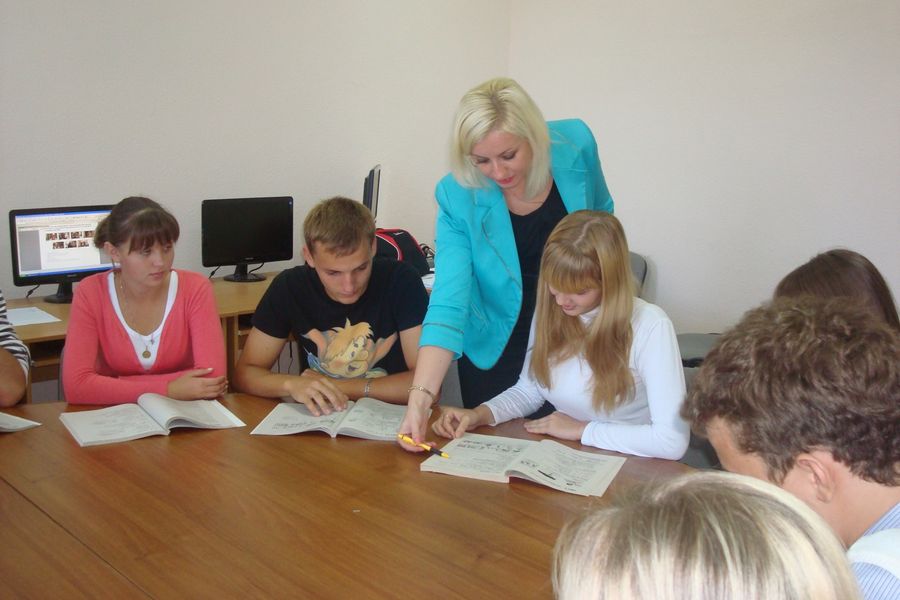
Teachers, working at the General Linguistics and Foreign Languages Department, have the opportunity to train students in the classrooms with modern audio, video and computer equipment. They constantly search for new forms of educational work aimed at transforming the educational process into the Department’s cooperation with students, postgraduates and colleagues from other University departments. Network computer lab with standard hardware, equipped with the appropriate headset (headphones and microphones), and with special software - modern software system “Dialogue Nibelung” - has become a real linguistic laboratory. The right choice of software permitted developing the course content, solving certain training objectives in the formation of foreign language students' communicative competence in reading, listening, speaking and writing, managing their independent work. Since now the role of the teacher as the central figure of the educational process makes itself evident in the fact that by means of “spying” and “intervention” the teacher can correct and evaluate a student’s work very quickly, just when the student is doing the task, which cannot be achieved by other training facilities.
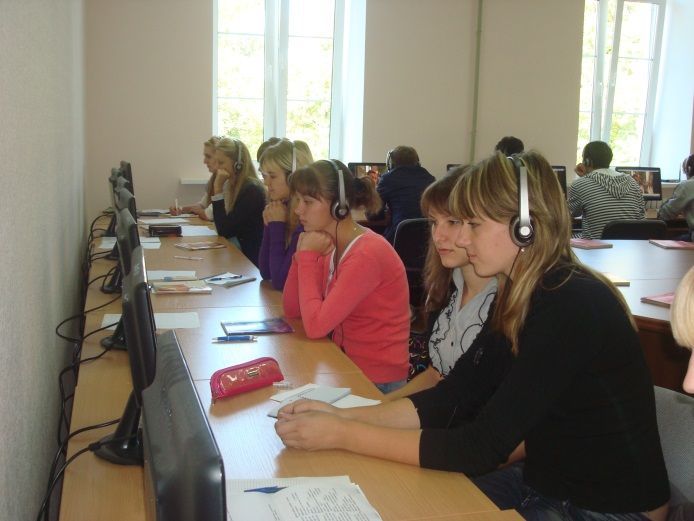
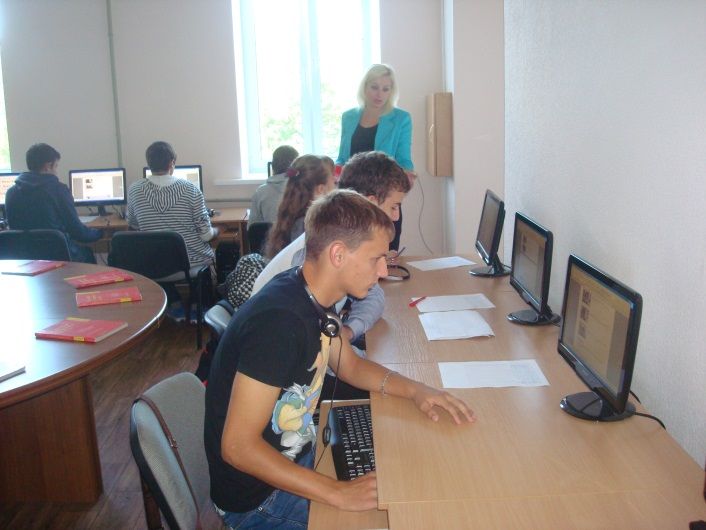
Teachers constantly publish guidelines and methodological recommendations on teaching foreign language for specific purposes to the students of all faculties and specialties. Department staff members regularly prepare and issue guidelines in English, German, Polish and French languages for students, masters and postgraduates in order to improve their monologue and dialogic speech, to automize the use of grammatical structures and to develop skills of translating professional texts. In the teaching materials preparation and in the development of training aids our teachers keep up with the demands of the Ministry of Education and Science of Ukraine.
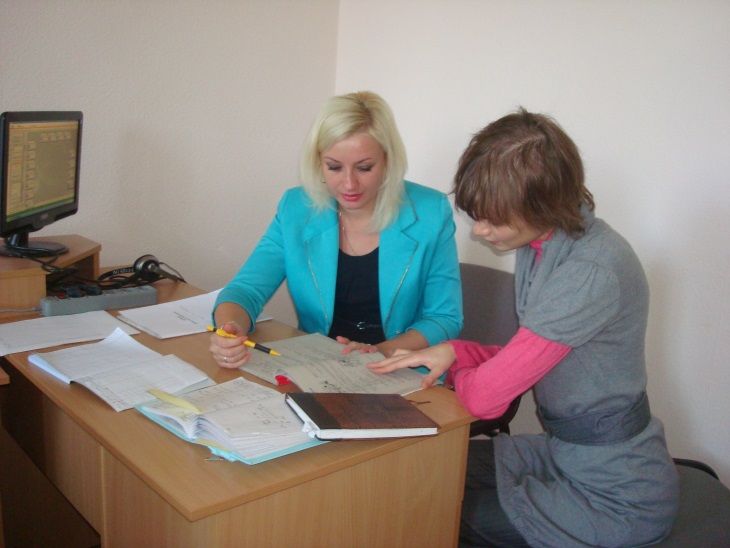
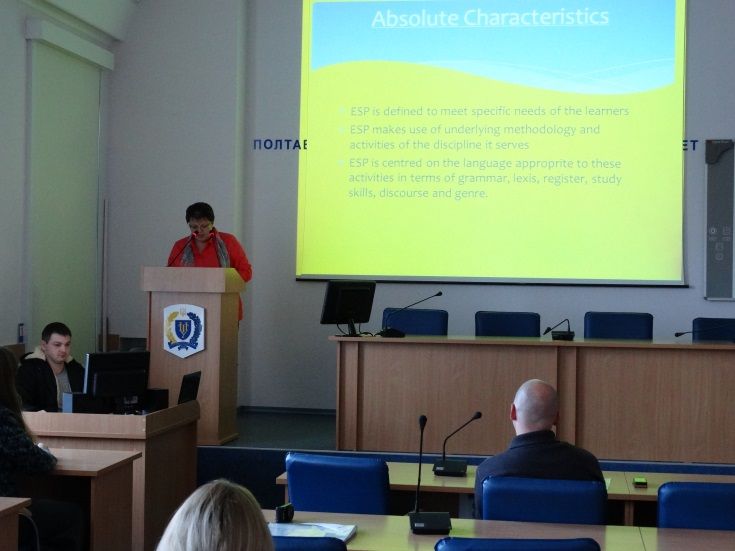
The methodology workshop meetings are inseparable part of the Department’s activity. During these tutorial workshops the teachers discuss contemporary issues of teaching foreign languages, such as: information technology in teaching foreign languages - the use of computer training programs (e.g. Reward), applications (Word, PowerPoint), application-shells (Hot Potatoes, “Dialogue Nibelung”), the use of Internet services, and Internet resources, implementing the e-learning elements, analysis of textbooks for teaching foreign language for specific purposes, modern approaches to testing the level of forming the foreign language communicative competence, structure and content of international tests: IELTS, TOEFL, FCE, CAE, the use of language portfolio – a means permitting students to keep track of the foreign language learning experience and intercultural communication, to set personal learning goals, to make self-assessment of linguistic achievements; project methodology implementation into the process of professional foreign language training, organizing and monitoring information, research projects.
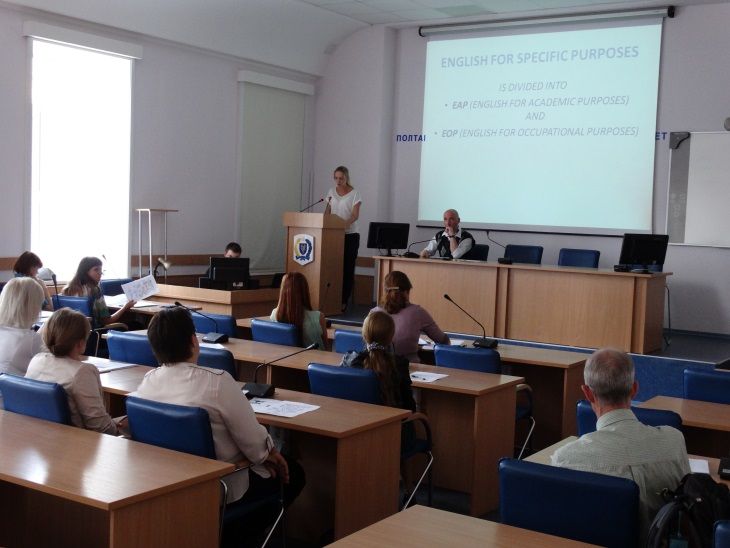
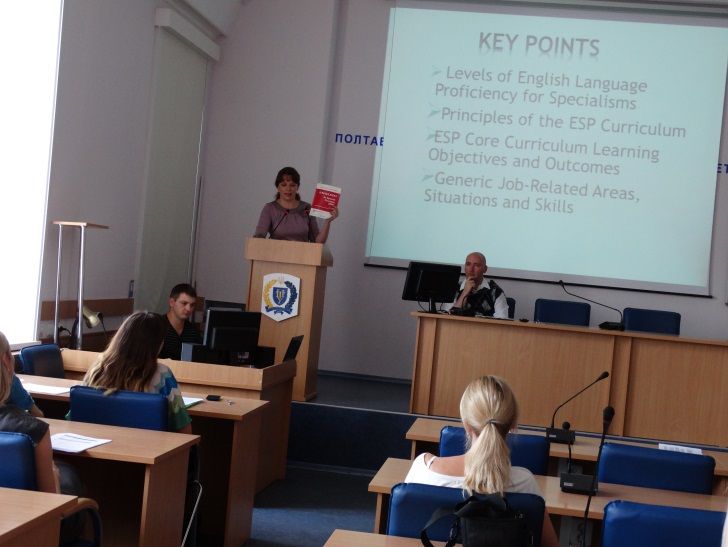
Research work. Scientists of the department carry out research on modern problems of philology and pedagogy, in particular:
- communicative linguistics;
- discourse studies;
- theories and methods of teaching foreign languages;
- translation studies and methods of teaching translation;
- general pedagogy.
Staff’s scientific potential. The Department is actively working at raising its staff’s scientific potential. Nowadays teachers are of PhD degrees, several teachers are working at her own thesis research as applicants for the PhD degree.
Publication of scientific reports. Publication of scientific reports and research findings related to the Department’s research work.
Scientific and technical activities. The teachers’ participation in international research activities and their involvement in international scientific publications has significantly increased. For example, the Department’s teachers participated in research and technological activities of universities and research institutions not only in Ukraine, but in Belgium, Bulgaria, South Africa, Poland, Czech Republic and Sweden as well.
Since 2013 the General Linguistics and Foreign Languages Department launched the scientific conference “Innovative Technologies in the context of Foreign Languages Teaching”, since 2018 – International scientific conference “Innovative Technologies in the context of Foreign Languages Teaching”.
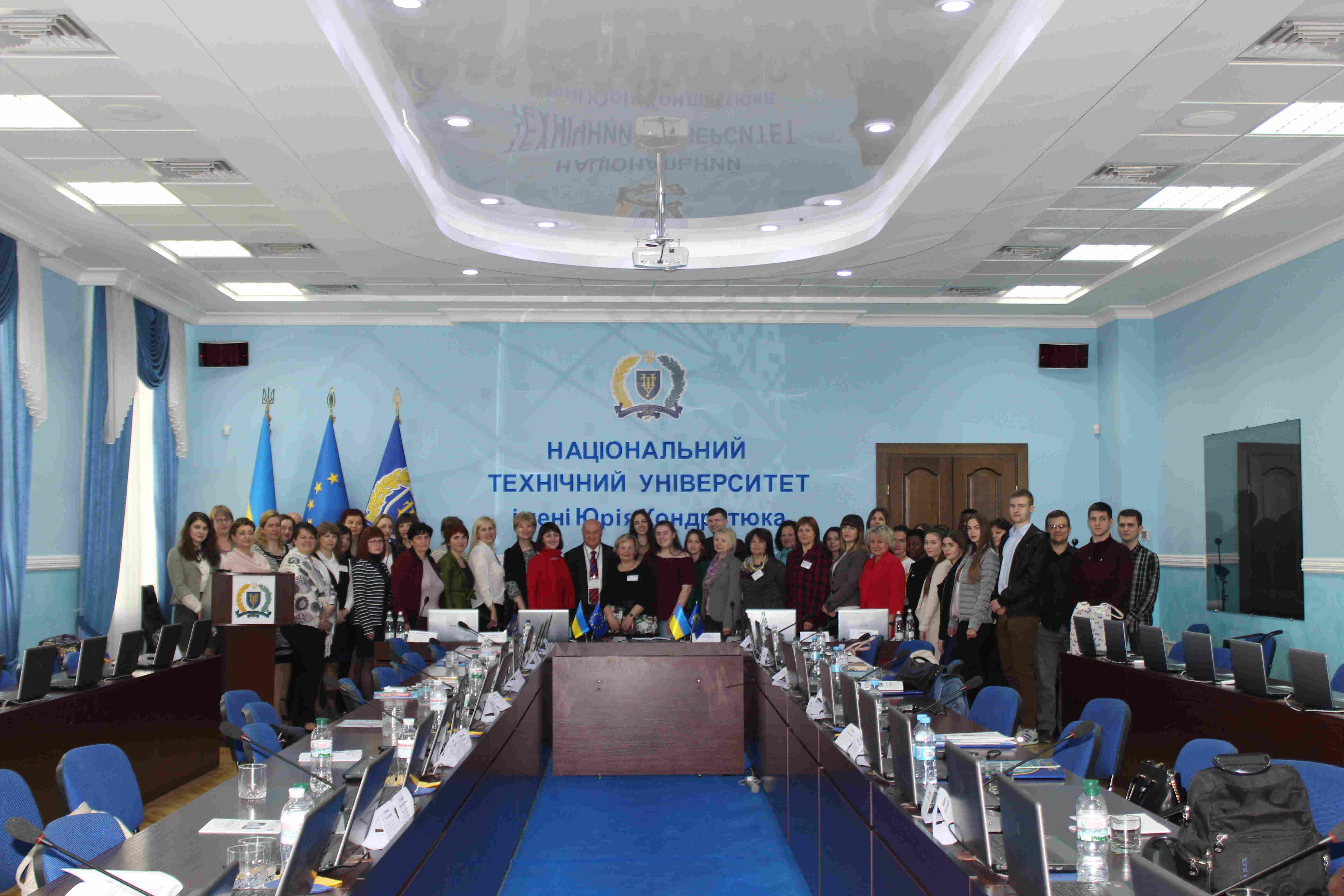
Third scientific conference “Innovative Technologies in the context of Foreign Languages Teaching”
Scientific-methodical laboratory “Foreign Languages Center” provides consulting assistance to teachers’ staff, postgraduates and University students for their adaptation to constantly changing modern educational process in the field of international cooperation, as well as the participation in scientific grants, projects and programs, carrying out the research works and publishing their results in Creative Commons Attribution licensed scientific journals, holding the educational process and its methodological support.
Student research work. The University students not only have the opportunity to receive qualified practical and theoretical training in disciplines taught by the teachers of the department, but also to master skills of carrying out scientific research, which they obtain, taking part in different scientific conferences and publishing their research papers. Students can use library stocks and computer labs with access to the Internet.
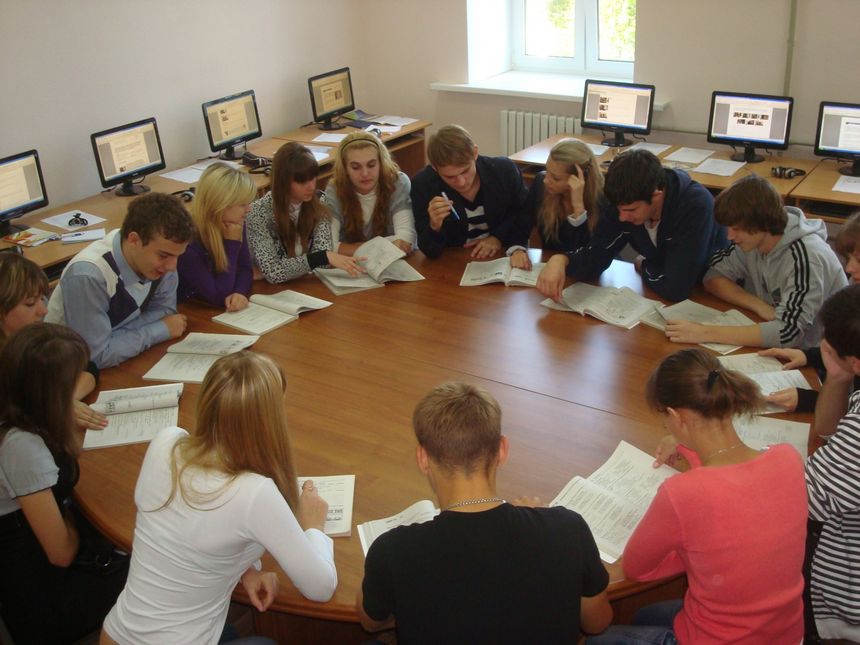
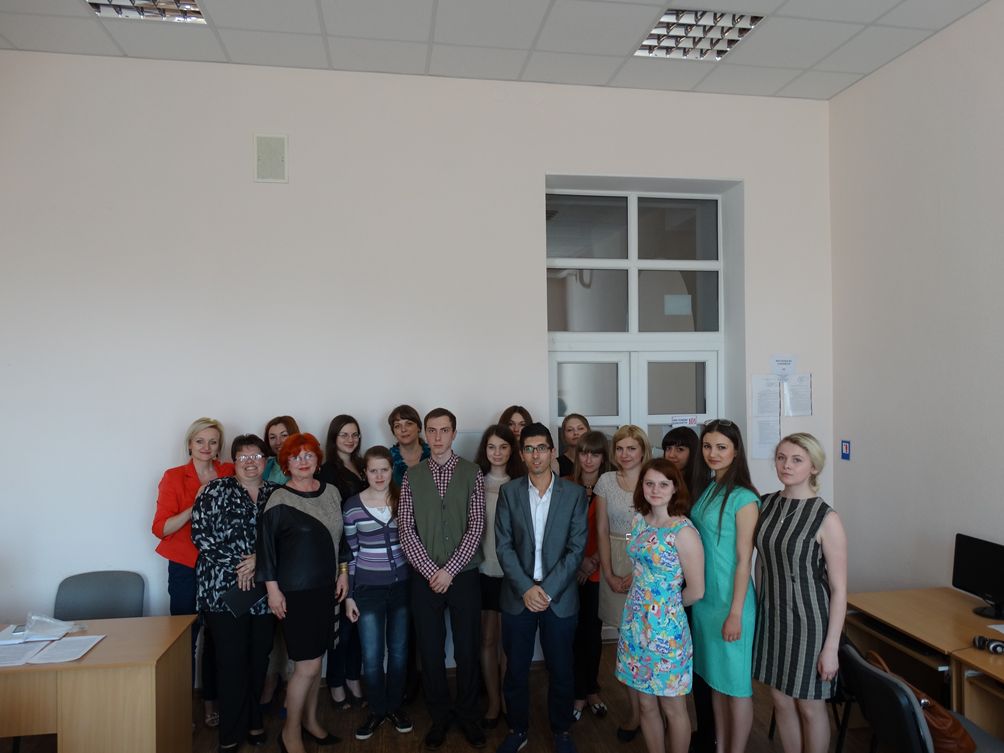
The teachers’ research activities aim at studies of various fields, as well as translation science, foreign literature study, discourse study, methods of English teaching, the results of their work are given in scientific publications, speeches at conferences.
The General Linguistics and Foreign Languages Department holds:
- International scientific conference “Innovative Technologies in the context of Foreign Languages Teaching”.
- Annual scientific student conference "Philology through students' eyes".
The purpose of the conference is the exchange of students' current and promising philological ideas; search, support, promotion of creative development of gifted schoolchildren capable of scientific activity.
Areas of work of the conference:
- Germanic, Romance and other languages.
- Slavic Languages and Literature
- Foreign literature.
- Current issues of intercultural communication and translation studies
Address: 36011, Ukraine, Poltava, 24, Pershotravnevy Avenue, Central Building
(study No 319)
Phone: (066) 427 99 10.
E-mail: kafedra_pntu@ukr.net
Facebook: https://www.facebook.com/inoz.fil/